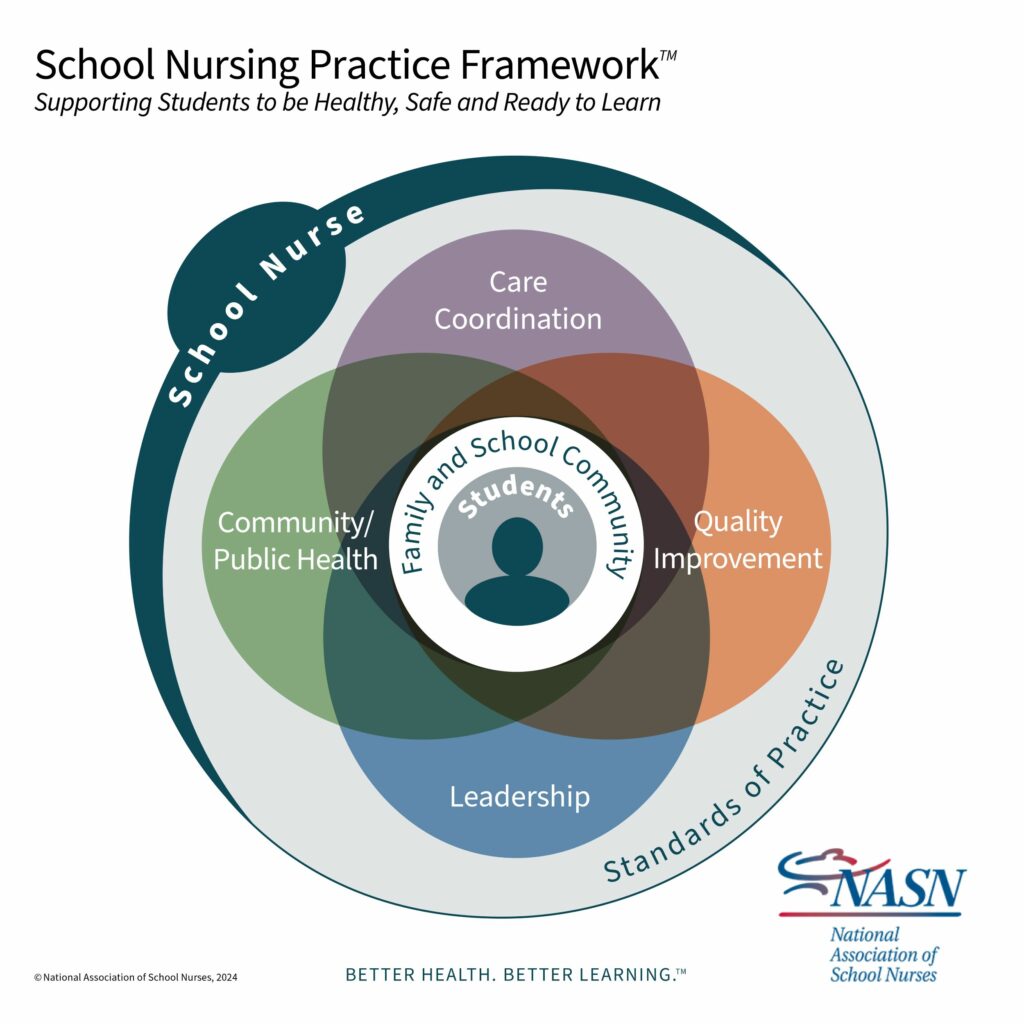
Understanding the School Nursing Practice Framework™
In 2016, the National Association of School Nurses (NASN) released its Framework for 21st Century School Nursing Practice™. This Framework became an essential tool for school nurses and health staff, outlining what successful student healthcare looks like.
Recently, NASN updated their framework to reflect the state of healthcare and education in 2024. Keep reading to learn about the new School Nursing Practice Framework™ and how Magnus Health can help you fulfill it.
School Nursing Practice Framework™
Before we dig into the new Framework, it’s important to understand why it even exists. According to NASN, the Framework was developed to help school nurses better understand, “explain, and carry out their school nursing practice with a distinctive environmental context and skill set.”
As a school nurse, how often do people associate your role with minor bumps and bruises? School nursing is so much more than that. Compared to other nursing specialties, school nursing is a unique blend of pediatric care, mental health, community health, emergency response, and education. A dedicated framework can help set expectations for both nurses and those in the community who don’t realize the full scope of their role.
Which leads us to the School Nursing Practice Framework™. The Framework is built on four principles that converge to support families, school communities, and students at the center: care coordination, quality improvement, leadership, and community / public health. When a school nurse abides by the four principles, they will fulfill the Framework’s tagline of “Supporting Students to be Healthy, Safe and Ready to Learn.”

As the leading electronic student health record solution for private and independent K-12 schools, Magnus Health is uniquely designed to support school nurses in each of these areas.
Care Coordination
NASN defines care coordination as “the principle that brings student-centered like activities together that are purposeful and deliberate in the delivery of health services over time.” In other words, it’s all about collaboration.
Here at Magnus Health, collaboration is at the heart of everything we do. Our EHR software is built to support student care across the entire school — not just the health office. School nurses can share treatment notes and communicate directly with counselors, coaches, teachers, administrators, and even families all within a secure platform.
We also prioritize collaboration with our customers to better understand the challenges and realities of K-12 student care. We host monthly webinars and instructor-led training sessions to help customers further their use of Magnus Health and advance their knowledge of trending topics like mental health and wellness.
Quality Improvement
This principle describes “data collection and its use for consistent practice improvement and measurable outcomes for the student, school community, and the school nurse.”
In today’s data-driven world, information is everything. Whether you want to monitor student medications, analyze student progress, or identify immunization trends among your school community, it’s critical to have accurate, up-to-date information that you can trust.
With Magnus Health, schools have reliable access to student health information across all facets. This data can help health staff have informed conversations with parents, make intelligent decisions, and get a full picture of their school community.
Leadership
NASN views this principle as “the mind-set of leadership, not a position.” School nurses often work behind the scenes to maintain healthy school environments — but their insights and expertise can help them play a pivotal role in school leadership.
Magnus Health can help school nurses foster leadership in a few ways. First, the access to quick and reliable student health data can uncover school-wide trends both in and outside of the health office. This data can be used to make informed decisions about school policies, budgets, or even programming.
Second, Magnus Health’s emergency response tools can be used to both help plan for and act during a time of crisis. School nurses can provide guidance on emergency action plans and establish protocols for responding to medical and campus emergencies. These action plans and protocols can be accessible via Magnus Health for quick emergency response and expedited care.
Community / Public Health
This principle focuses on “delivering proactive nursing services within and across school populations.”
From mental health to physical activity and dietary choices, education is a key element of student care. Magnus Health can help support health education by identifying trends among the school community. For instance, if you notice an influx of student health office visits around exam week, you might host a school-wide assembly about stress management and anxiety.
Additionally, we provide education on related topics to help our customers stay informed. Our annual CONNECT conference brings together industry experts and school peers to learn about trending health topics and how emerging technologies like AI will impact student care.
Supporting School Nurses
The School Nursing Practice Framework™ provides a great foundation for understanding the total impact and responsibility of school nurses. From care coordination to quality improvement, leadership, and community / public health, Magnus Health strives to support school nurses day in and day out.
To learn more about how our EHR software can support your health office, watch our on-demand webinar to hear how two school nurses have benefitted from Magnus Health.

